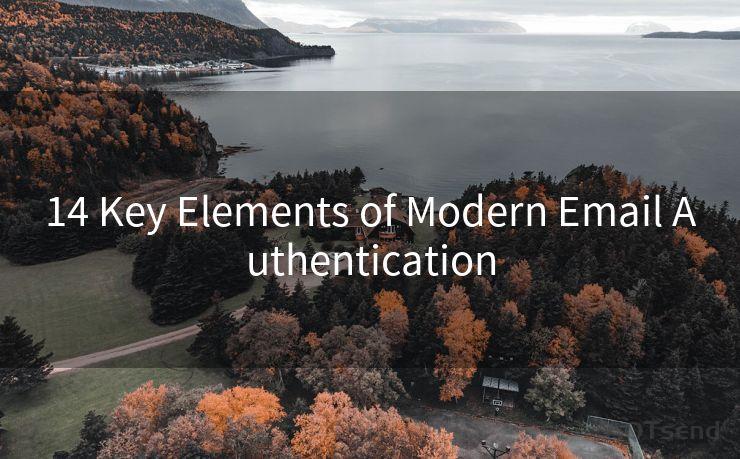14 Key Elements of Modern Email Authentication




In the digital age, email remains a crucial communication tool for both personal and business use. However, with the rise of cybercrime, email authentication has become increasingly important. To ensure the security and integrity of email communications, it's essential to understand the key elements of modern email authentication. Here are the 14 key elements you need to know.
1. SPF (Sender Policy Framework)
SPF is a DNS-based authentication method that specifies which IP addresses are authorized to send emails from a particular domain. It helps prevent email spoofing and ensures that emails originate from a trusted source.
2. DKIM (DomainKeys Identified Mail)
DKIM uses cryptographic signatures to verify the integrity and authenticity of an email message. It ensures that the email hasn't been tampered with during transit.
3. DMARC (Domain-based Message Authentication, Reporting, and Conformance)
DMARC builds upon SPF and DKIM to provide a policy framework for handling unauthenticated emails. It allows domain owners to specify how unauthenticated emails should be handled.
4. TLS (Transport Layer Security)
🔔🔔🔔
【AOTsend Email API】:AOTsend is a Managed Email Service for sending transactional emails. Support Email Types: reminders, authentication, confirmations, notifications, verification codes, invoices, password resets, account activations, billing statements, two-factor authentication (2FA), and one-time passwords (OTP) emails, etc. $0.28 per 1000 Emails. 99% Delivery, 98% Inbox Rate.
You might be interested in:
Why did we start the AOTsend project, Brand Story?
What is a Managed Email API, How it Works?
Best 25+ Email Marketing Platforms (Authority,Keywords&Traffic Comparison)
Best 24+ Email Marketing Service (Price, Pros&Cons Comparison)
Email APIs vs SMTP: How they Works, Any Difference?
TLS encrypts email communications, ensuring that sensitive information remains secure during transmission. It's essential for protecting the privacy of email contents.
5. Secure MIME (S/MIME)
S/MIME provides end-to-end encryption and digital signatures for email messages. It ensures the confidentiality, integrity, and authenticity of emails.
6. DNSSEC (DNS Security Extensions)
DNSSEC adds a layer of security to the DNS lookup process, preventing DNS spoofing and cache poisoning attacks. It ensures that you're connecting to the legitimate email server.
7. Multi-Factor Authentication
Multi-factor authentication adds an additional layer of security to email accounts. It requires multiple verification methods, such as a password and a fingerprint or a one-time password.
8. Anti-Spam Filters

Anti-spam filters help identify and block unsolicited and malicious emails. They use various techniques, including heuristic analysis, blacklists, and whitelists.
9. Email Encryption Gateways
Email encryption gateways provide an additional level of security by encrypting all incoming and outgoing emails. They ensure that only authorized recipients can access the email contents.
10. Secure Email Clients
Using secure email clients that support the latest encryption standards is crucial for email authentication. These clients provide end-to-end encryption and other security features.
11. Regular Updates and Patches
Keeping your email system up to date with the latest security patches and updates is essential. It helps protect against known vulnerabilities and exploits.
12. Strong Password Policies
Implementing strong password policies, including length and complexity requirements, can significantly enhance email account security.
13. Employee Training and Awareness
Educating employees about email security best practices is crucial. They should be aware of phishing scams, malware attachments, and other email-based threats.
14. Regular Auditing and Monitoring
Regularly auditing and monitoring email accounts and systems for suspicious activity is essential. It helps identify and mitigate potential security risks promptly.
By incorporating these 14 key elements of modern email authentication, you can significantly enhance the security of your email communications. Remember, email security is a shared responsibility, and it's essential to stay vigilant and proactive in protecting your data.




Scan the QR code to access on your mobile device.
Copyright notice: This article is published by AotSend. Reproduction requires attribution.
Article Link:https://www.mailwot.com/p3803.html



